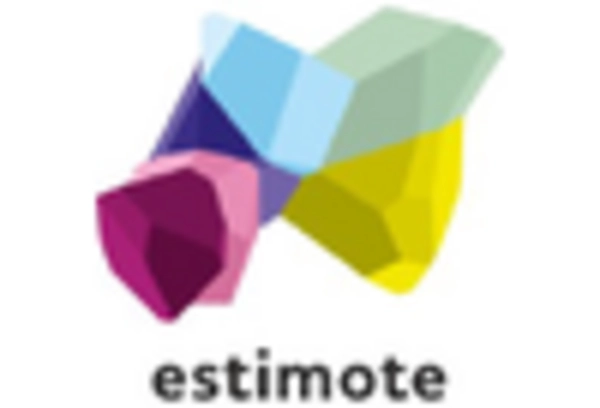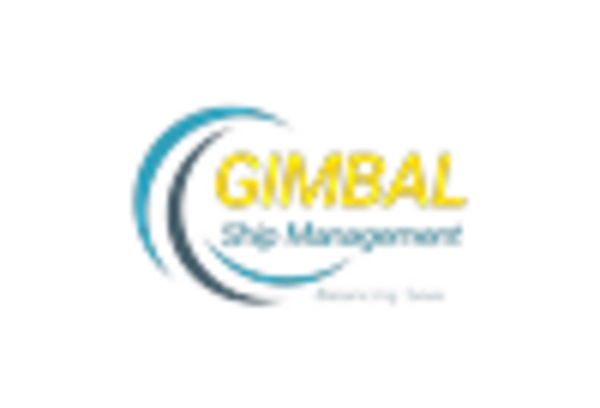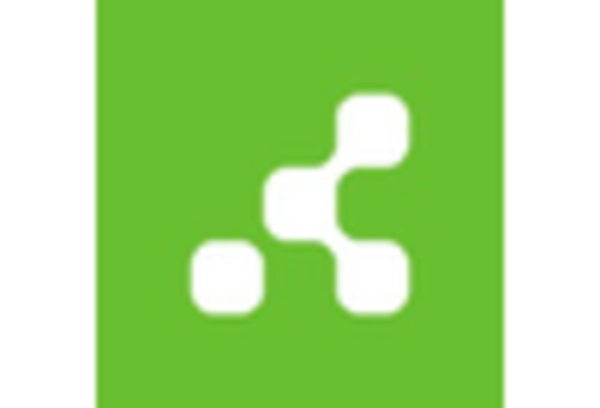Enhanced Customer Engagement
The Beacon Technology Market is witnessing a surge in demand due to its ability to enhance customer engagement. Retailers are increasingly adopting beacon technology to deliver personalized promotions and notifications to customers' smartphones. This targeted approach not only improves customer experience but also drives sales. According to recent data, businesses utilizing beacons have reported a 20% increase in customer engagement rates. As companies strive to create more interactive shopping experiences, the integration of beacon technology becomes essential. This trend is likely to continue as more retailers recognize the potential of beacons to influence purchasing decisions and foster brand loyalty.
Advancements in IoT Integration
The Beacon Technology Market is benefiting from advancements in Internet of Things (IoT) integration. As IoT devices proliferate, the synergy between beacons and IoT technology creates new opportunities for automation and data collection. This integration allows businesses to streamline operations and improve customer experiences through smart environments. For instance, beacons can trigger actions in connected devices, enhancing the overall functionality of smart homes and offices. The increasing adoption of IoT solutions is expected to propel the beacon technology market, as organizations seek to harness the power of interconnected devices for better service delivery.
Growth in Location-Based Services
The Beacon Technology Market is significantly influenced by the growth of location-based services. As businesses seek to leverage precise location data, beacons provide an effective solution for real-time tracking and engagement. The market for location-based services is projected to reach USD 40 billion by 2026, indicating a robust demand for beacon technology. This growth is driven by the increasing need for businesses to understand customer behavior and preferences. By utilizing beacons, companies can gather valuable insights into foot traffic patterns and customer interactions, thereby optimizing their marketing strategies and enhancing operational efficiency.
Increased Focus on Safety and Security
The Beacon Technology Market is also influenced by an increased focus on safety and security measures. Organizations are leveraging beacon technology to enhance security protocols in various environments, including retail stores, airports, and public spaces. Beacons can facilitate contactless check-ins and provide real-time alerts for emergencies, thereby improving overall safety. As businesses prioritize the well-being of customers and employees, the demand for beacon-enabled security solutions is likely to rise. This trend reflects a broader commitment to creating safer environments, which may further drive the growth of the beacon technology market.
Rising Demand in Transportation and Logistics
The Beacon Technology Market is experiencing rising demand in the transportation and logistics sector. Beacons are being utilized for asset tracking, inventory management, and enhancing supply chain visibility. By deploying beacons, companies can monitor the location and condition of goods in real-time, leading to improved operational efficiency. The logistics market is projected to grow at a CAGR of 7% over the next five years, further driving the adoption of beacon technology. This trend indicates a shift towards more intelligent logistics solutions, where beacons play a crucial role in ensuring timely deliveries and reducing operational costs.














